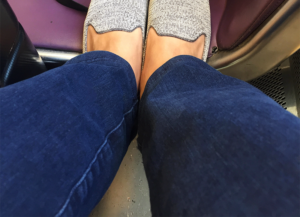
After paying basic living expenses and maxing out their 401k’s and Roth IRAs, Caroline and her partner have $4,000 – $5,000 left each month. Where should they put this money if their goal is to simply have their money work harder for them?
Sanjay is torn between selling his townhome or renting it out. The rental numbers don’t work on his 15-year mortgage — should he refinance to a 30-year mortgage instead?
“Olivia” has two unrelated questions: what are our thoughts on the housing market in relation to the moratoriums on mortgage payments and emergency bans on evictions? What will happen when they go away? Additionally, what tools, questions, or resources do we recommend to have a productive financial conversation with your partner?
Kyle wants to construct a portfolio with the highest Sharpe ratios and wants to know: would the risk parity model work? What are the downsides?
“Priyanka” wants to know: do you need to submit receipts for the HSA contributions you make?
G is curious: does the stimulus check received for their children count as earned income for the kids? If so, can they put it toward the Roth IRAs they opened for their children?
My friend and former financial planner, Joe Saul-Sehy, joins me as usual to tackle these questions. Enjoy!
Caroline asks (at 4:37 minutes):
Where should we put our money after our expenses and basic savings goals are met?
We have no debt aside from our $480,000 mortgage (we live in an expensive city). Our emergency fund is great, and after covering basic living expenses and maxing out our 401k’s and Roth IRAs, we still have $4,000 to $5,000 left each month to save or invest.
We just bought our first home, and we’re expecting our first child, so I’m not interested in real estate investing at this time. I thought about opening additional brokerage accounts, but I’m not sure where to start. We could put extra towards our mortgage, but I’m not sure that’s the right choice, either.
Joe always talks about goal-setting and having savings buckets for your goals, but our current goals are to live below our means and have our money make as much money as we can. What do you recommend we do?
“Olivia” asks (at 26:38 minutes):
I have two questions:
- What’s your take on the current housing market in relation to the moratorium on mortgage payments and emergency bans on evictions that some states have? When those safety nets are taken away, how do you see that affecting the housing market or even investing in REITs?
- Do you have any tools, resources, or specific questions that partners can ask each other about their financial goals or priorities? My husband and I are both frugal, but anytime I engage him in a conversation about our finances, it seems to fizzle out quickly. I love Joe’s stick-figure time of your life suggestion, but are there any other ideas I can try?
“Priyanka” asks (at 44:45 minutes):
My question is about HSAs. I understand I should save receipts for healthcare expenses for when I plan to withdraw the money from my HSA. I plan to use it as an additional retirement vehicle, so I have my funds invested. Do I need to submit receipts for the amount that I contributed, or for the amount that I contributed plus the growth while invested? I hope that makes sense.
Sanjay asks (at 53:32 minutes):
I have $80,000 saved to buy a single-family home. I currently own a townhome which I owe $137,000 on. The monthly mortgage payment is $2,100, and I’m in my fifth year on a 15-year mortgage.
The Zillow estimate on my townhome is $290,000. I’d like to rent it once I move into a single-family home, but the numbers don’t seem to work. According to Rent-o-meter, the average rent in my area is $1,200 per month. Should I refinance my 15-year mortgage to a 30-year mortgage to be in a positive cash flow situation? Or should I sell my townhome and use the proceeds towards the single-family home? Are there any options I’m missing?
Kyle asks (at 1:03:13 minutes):
I recently listened to episode 292, in which 3 Kids FI asked about adding volatility to his portfolio. Going through the most recent bear market, I had the opposite question: how can I construct a portfolio that will give me shrunk returns with the minimal variants? Specifically, how can I construct a portfolio with the highest Sharpe ratio? Through my research, the risk parity model for constructing portfolios seems to come up often. This model specifically tries to construct a portfolio with volatile asset classes that have different correlations to make the total portfolio less risky. The major asset classes in many of these portfolios include stocks, long-term or no-coupon government bonds and commodities.
Paula recently introduced me to the tools through portfolio charts and visualizers, and through this, I’ve realized that even though I have many asset classes in my portfolio, it still correlates remarkably closely with the general S&P 500. I’d like to construct a portfolio that does well in all weather.
What do you think of the risk parity model? I can see a few risks, including the globe moving away from the dollar as the global currency and the U.S. defaulting on debt obligations. What else am I missing?
G asks (at 1:14:33 minutes):
Can the $600 stimulus checks that we received for both of our children be considered earned income for them? If so, we’d like to put it into their Roth IRAs that we started last year, after they started earning money by mowing lawns and doing odd jobs for neighbors.
Resources Mentioned:
- The Early Retirement Episode (breaks down HSA’s) | Article/Podcast
- Broke Millennial Talks Money, by Erin Lowry | Book
- How to Talk to Friends About Money, with Erin Lowry | Interview
- The Pandemic Ignited a Housing Boom — but it’s Different From the Last One | WSJ
- Do stimulus checks count as income? | MSN Money
Thanks to our sponsors!
Public
Public.com is creating a new, more inclusive culture for investing. You can start investing today with as little as $1. You’ll even get a free slice of stock when you join. Go to public.com/affordanything to download the Public app. You can follow me and see what I’m investing in, too.
Pandora
Struggling with gift ideas for Mother’s Day? Pandora has the perfect gift for the mom in your life with a variety of rings, necklaces, earrings, and bracelets. From April 22nd through the 26th, you’ll receive a free, limited-edition, sterling silver bangle with your Pandora purchase of $150 or more. Go to us.pandora.net/paula to start shopping, or to find a store near you.
Bloomscape
Spring is here! Want to shake off the winter bloom? Try infusing your space with some greenery with Bloomscape. You’ll get healthy plants delivered to your door, complete with a Grow-How team that’s available to answer any questions you have. Get 15% off plant orders of $100 with promo code paula at bloomscape.com.

My Betabrand pants are so comfortable!
Betabrand
It’s nice to feel comfortable and put together, especially when working from home. Betabrand has many different styles of dress pant yoga pants, and they’re as awesome as they sound. Check out betabrand.com/paula and get 30% off one pair.